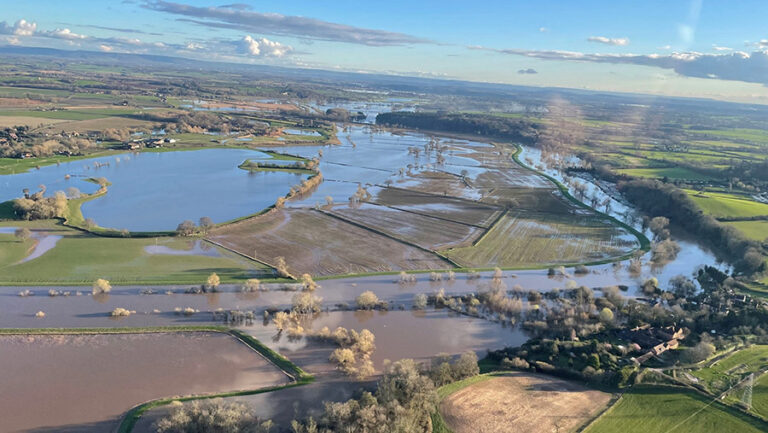The Country Land and Business Association (CLA) have urged a scheme to help farmers hit by floods open following one of the wettest winters in decades.
Across the UK, thousands of acres of food-producing land are still waterlogged due to the prior months of rainfall and the wettest 12 month-period in 150 years.
After storm Henk in January, the government announced that farmers who had suffered uninsurable damage to their land could apply for grants of up to £25,000 through the Farming Recovery Fund.
Despite this, the fund still has not opened three months later amid calls that urgent action is needed to tackle the flooding problem.
See also: Bayer joins forces with Trinity AgTech to drive regen farming
CLA president Victoria Vyvyan spoke on the damage, saying that the impact has been profound, damaging infrastructure, soil and environmental projects as well as crops and livestock.
“Farmers are dynamic and forward-thinking and are used to working with extreme weather, but the last few months have been especially difficult,” she said.
“The winter rainfall is pushing businesses to their limit and many fear for this entire cropping season.”
The CLA also claim landowners don’t receive compensation when the Environment Agency “floods their fields” to protect houses and villages, despite the harm to their crops.
Any potential reductions in land used domestic food production could also lead to increases of imports and costs.
“Farming businesses are willing to help protect homes and businesses from flooding by storing floodwater, but in turn there should be recognition of the added burdens on farmers with appropriate compensation.”
Somerset farmer Charlie Ainge said some of his arable fields were flooded for seven weeks during winter, and said changes to rainfall patterns and a lack of maintenance work by the Environment Agency were the reasons.
Mr Ainge said: “This year has been terrible, and to still be under water in spring is unheard of.
“Our whole arable operation is on hold because there’s nowhere to drill, and we’ve reached the point where we’re seriously considering its long-term future.”


